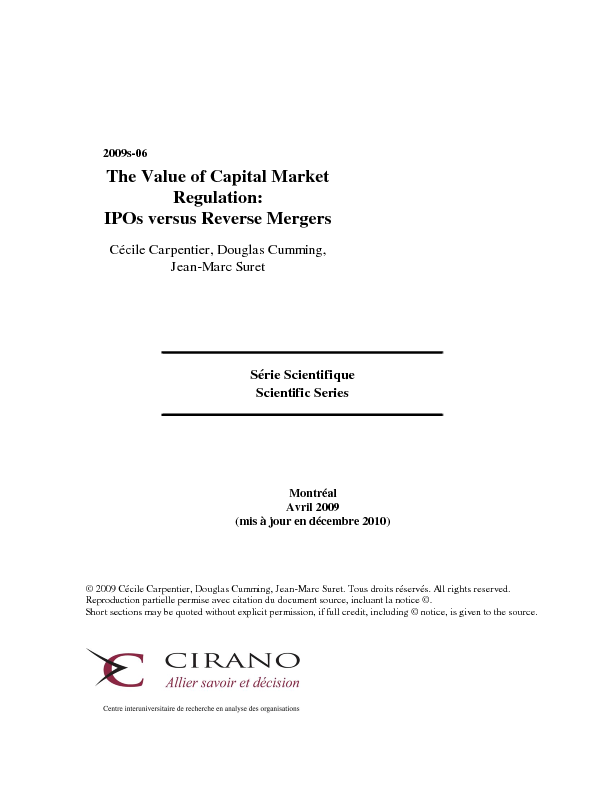The Value of Capital Market Regulation: IPOs versus Reverse Mergers
We analyze the economic consequences of disclosure and regulation within a context of significant information asymmetry and lenient regulation. In Canada, firms can enter the stock market at a pre-revenue stage by fulfilling each of the requirements of an initial public offerings or using reverse mergers. This backdoor listing method implies a smoother oversight by the securities commission and a shorter process based on private placements. Controlling for several dimensions, including self-selection, we find that the choice of the listing method and regulation strictness significantly influence the value and long-run performance of newly listed firms. These results are consistent with theories suggesting that a commitment by a firm to a stricter regulatory oversight lowers the information asymmetry component of the cost of capital, reduces the heterogeneity of expectations and mispricing.
[ - ]
This version was updated in December 2010.




